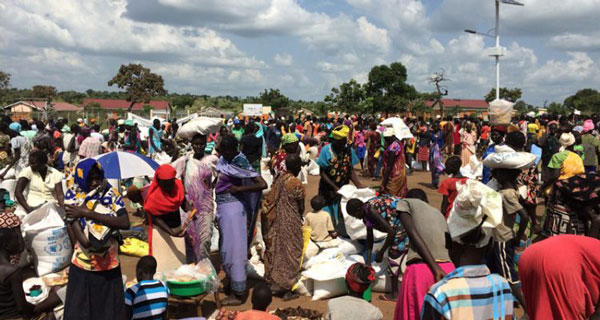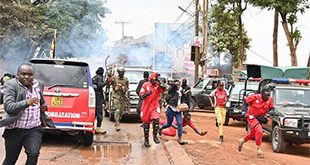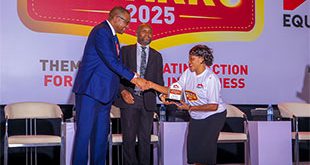
Clashes noted over jobs, land, water, stray animals in eight refugee settlements
Kampala, Uganda | THE INDEPENDENT | A study by International Refugee Rights Initiative (IRRI) between December 2018 and May 2019 among 470 refugees and host communities in Arua, Adjumani and Lamwo shows that the tension between the two groups could escalate into broader conflict if not properly addressed. The refugees surveyed stay in settlements like Imvepi, Rhino Camp, Boroli, Maaji, Nyumanzi, and Pagirinya.
IRRI founded in 2004, are registered as a non-profit organisation in the US, the UK and Uganda to inform and improve responses to the cycles of violence and displacement that are at the heart of large-scale human rights violations.
The report titled ‘Understanding conflict dynamics around refugee settlements in northern Uganda’ was released on Aug. 28 at Silver Springs Hotel in Bugolobi, Kampala at an event attended by IRRI staff, the Belgian Ambassador to Uganda, refugees, journalists and other civil society actors.
Refugees complained that they are often denied access to firewood and grass for thatched roofs by their host communities. In turn host communities accused the refugees of not seeking their consent when it came to use of some of some natural resources. Refugees had started making bricks and charcoal to complement the assistance given to them.
IRRI notes in its report that the fight over land and some of the natural resources which is causing environmental degradation is escalating rapidly in refugee-hosting districts.
The report notes that investments in tree planting and fuel alternatives are not sufficient for de-escalation. IRRI recommends to government that efforts by local leaders to have dialogue were commendable but there is need for long term, intensive action to address the issue head on. The high number of South Sudanese refugees has put a strain on the land plots allocated to them, not mentioning the rocky and infertile nature of the soil.
“Refugees thus conclude agreements, often informally, with host community members to work on their land in exchange for, often monetary, compensation,” the report states. Refugees and their hosts are also competing for jobs from the several international NGOs.
Residents say they should be given first priority for jobs form NGOs. Inter community tensions, exacerbated by presence of individuals involved in the South Sudan conflict was also a powder keg in refugee settlements.
With the insecurity in the neighboring South Sudan, IRRI notes that a lot of caution and monitoring needs to be done by the Uganda government in cross-border movements.
The report concludes, “In sum, despite overall good relations, there are many pressure points in refugee hosting areas in northern Uganda which could escalate into serious conflict either between refugee and host communities, or within the refugee community.”
 The Independent Uganda: You get the Truth we Pay the Price
The Independent Uganda: You get the Truth we Pay the Price


